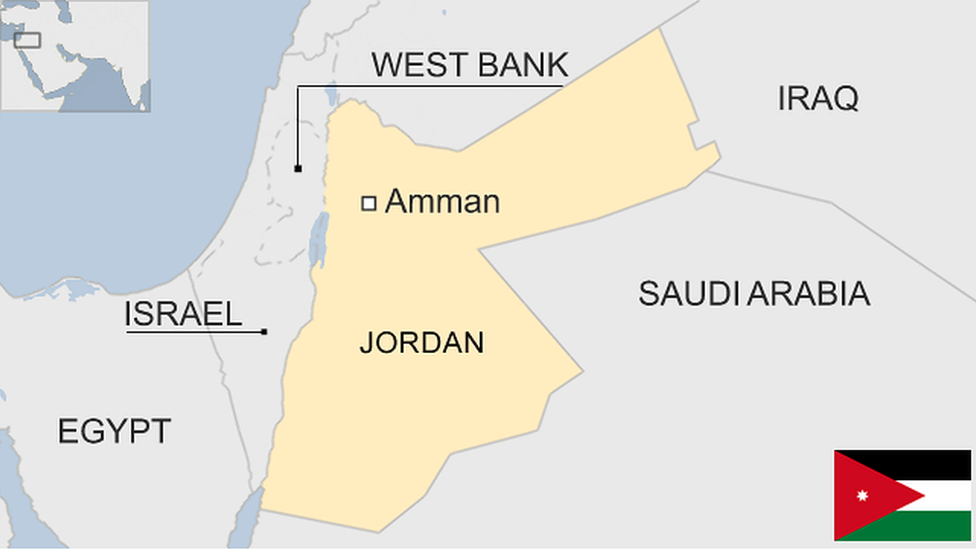Lebanon country profile
- Published
This page is no longer being updated. It was last updated on 10 January 2025
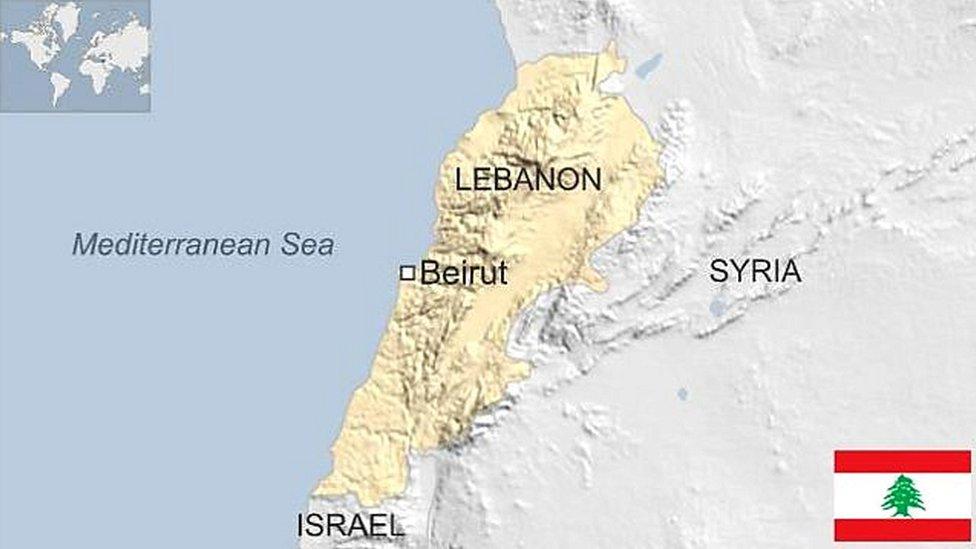
With its high literacy rate and traditional mercantile culture, Lebanon has been an important commercial hub for the Middle East.
It has also often been at the centre of Middle Eastern conflicts, despite its small size, because of its borders with Syria and Israel and its uniquely complex communal make-up.
Shia Muslims, Sunni Muslims, Christians and Druze are the main population groups in a country that has been a refuge for the region's minorities for centuries.
Read more country profiles, external - Profiles by BBC Monitoring , external
REPUBLIC OF LEBANON: FACTS
Capital: Beirut
Area: 10,452 sq km
Population: 5.2 million
Languages: Arabic, French
Life expectancy: 76 years (men) 80 years (women)
LEADERS
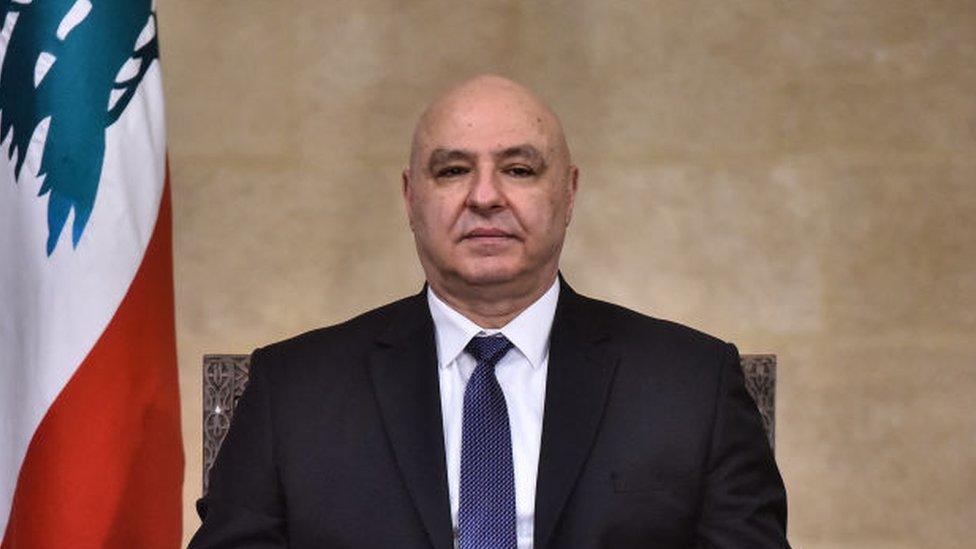
President: Joseph Aoun
Joseph Aoun, the Lebanon army chief, was elected president by parliament in January 2025, ending a power vacuum that had lasted more than two years.
His candidacy for the mainly ceremonial role - reserved for a Maronite Christian under a sectarian power-sharing system - was backed by several key political parties, as well as the US, France and Saudi Arabia.
A rival preferred by Hezbollah, the powerful Shia Muslim militia and political party supported by Iran, withdrew and endorsed the commander.
His election came six weeks after Lebanon agreed a ceasefire to a war between Israel and Hezbollah, which left the group significantly weakened and devastated areas where it holds sway.
The Lebanese army, which Aoun had led since 2017, was not involved in the conflict and has a key role under the ceasefire deal. It is required to deploy soldiers in southern Lebanon as Israeli troops withdraw and to ensure Hezbollah ends its armed presence.
Lebanon has not had a properly functioning government since the last parliamentary elections in May 2022.
Caretaker Prime Minister Najib Mikati was unable to secure backing for a new cabinet before then-president Michel Aoun's term ended that October, leaving his administration with reduced powers.
The deeply divided parliament then failed to elect a new president on 12 occasions.
Prime minister: Najib Mikati
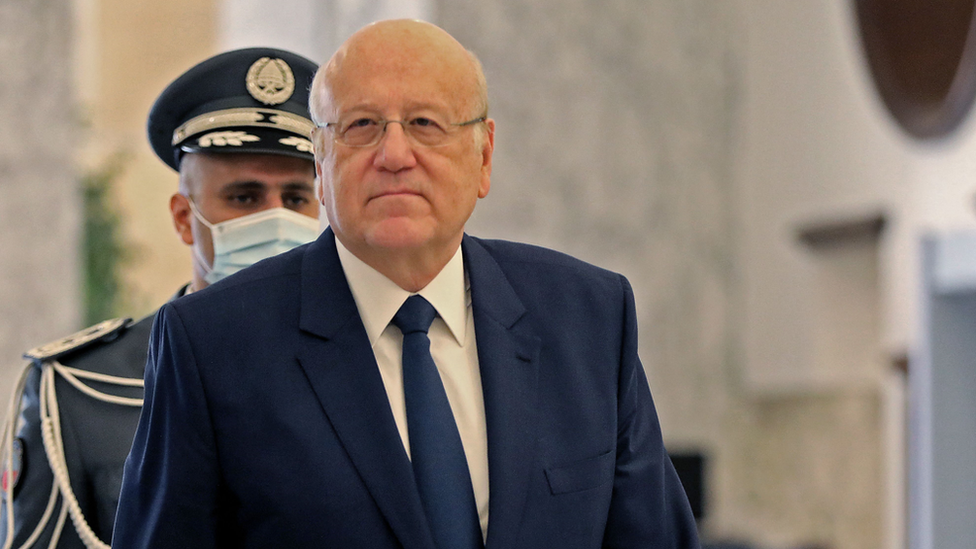
Najib Mikati, Lebanon's richest man, returned to head the government in September 2021, having served as prime minister twice before.
His appointment as caretaker prime minister came as the country struggled with a collapsing economy and nearly two years of protests demanding wholesale political reform.
MEDIA
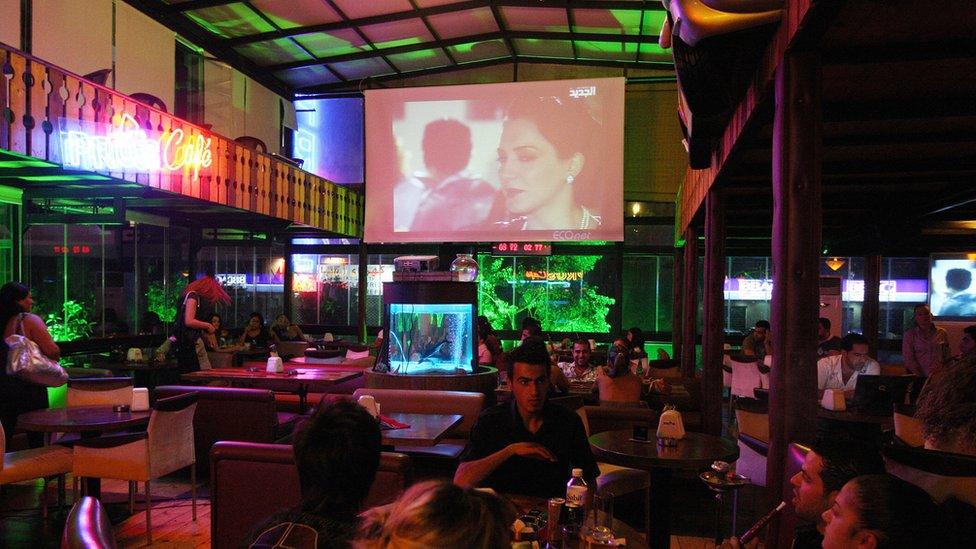
The media landscape is dominated by non-state outlets, including those affiliated with political groups and targeting sectarian communities.
TV is the most popular medium, with domestic channels more important news sources than pan-Arab ones.
Beirut is an important base for TV channels operated by, or supportive of, Iran. The state is a major player in the telecoms sector, but there is no large-scale filtering of online content.
There was a 10% jump between 2022 and 2024 in the number of users accessing social media.
Social media platforms used during anti-government protests in 2019 have shifted their focus to the war in Gaza and regional tensions.
Read full media profile
TIMELINE
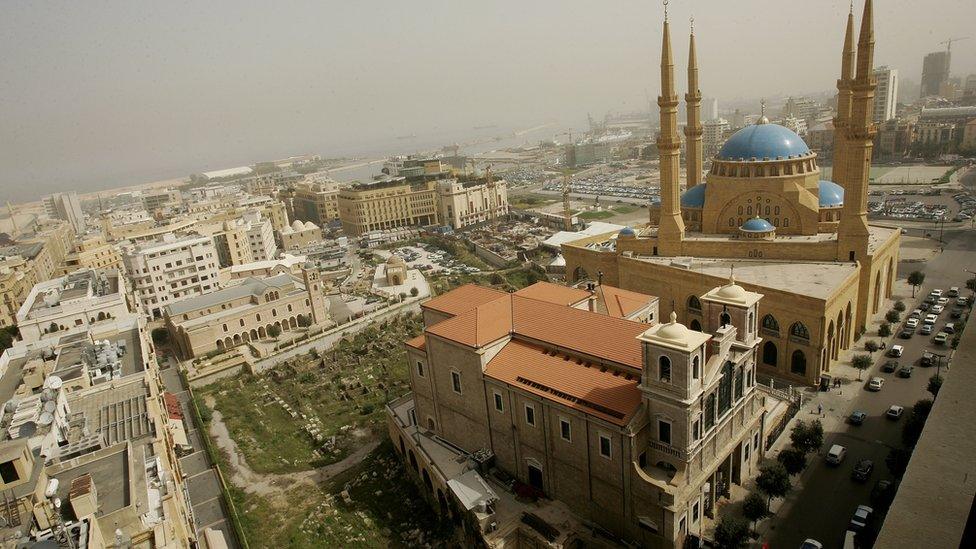
Much of downtown Beirut has been rebuilt after being devastated during the civil war
Some key dates in Lebanon's history:
1516-1918 - Lebanon part of the Ottoman Empire.
1920 - The League of Nations grants the mandate for Lebanon and Syria to France, which creates the State of Greater Lebanon out of the provinces of Mount Lebanon, north Lebanon, south Lebanon and the Bekaa.
1926 - Lebanese Representative Council approves a constitution and the unified Lebanese Republic under the French mandate is declared.
1944 - France agrees to transfer power to the Lebanese government.
1958 - Faced with increasing opposition which develops into a civil war, President Camille Chamoune asks the US to send troops to preserve Lebanon's independence. The US sends marines.
1967 - Lebanon plays no active role in the Arab-Israeli war but is to be affected by its aftermath when Palestinians use Lebanon as a base for attacks on Israel.
1975 - Phalangist gunmen ambush a bus in Beirut's Ayn-al-Rummanah district, killing 27 mainly Palestinian passengers, claiming guerrillas had previously attacked a nearby church. These clashes start Lebanon's 1975-90 civil war.
1976 - Syrian troops enter Lebanon to restore peace but also to curb the Palestinians, thousands of whom are killed in a siege of the Tel al-Zaatar camp by Syrian-allied Christian militias in Beirut.
1978 - In reprisal for a Palestinian attack, Israel launches a major invasion of southern Lebanon. It withdraws from all but a narrow border strip, which it hands over to its proxy South Lebanon Army mainly Christian militia.
1982 - Following an attempted assassination of Israel's UK ambassador by a Palestinian splinter group, Israel launches a full-scale invasion of Lebanon.
1982 - Pro-Israeli president-elect Bachir Gemayel is assassinated. Israel occupies West Beirut. Phalangist militia kills thousands of Palestinians in the Sabra and Shatila camps. US, French and Italian peacekeeping force arrives in Beirut.
1983 - Suicide attack on US embassy kills 63 people in April, and another in October on the headquarters of the peacekeepers kills 241 US and 58 French troops. US troops withdraw in 1984.
1985 - Most Israeli troops withdraw apart from a "security zone" in the south.
1988 - Outgoing President Amine Gemayel appoints an interim military government under Maronite commander Michel Aoun in East Beirut after inconclusive presidential elections. Prime Minister Selim el-Hoss forms a mainly Muslim rival administration in West Beirut.
1989 - Parliament meets in Taif, Saudi Arabia, to endorse a Charter of National Reconciliation transferring much of the authority of the president to the cabinet and boosting the number of Muslim MPs.
1990 - The Syrian air force attacks the Presidential Palace at Baabda and Aoun flees. This formally ends the civil war.
1991 - The National Assembly orders the dissolution of all militias, except for the powerful Shia group Hezbollah. The Lebanese army defeats the PLO and takes over the southern port of Sidon.
1992 - After the first elections since 1972, wealthy businessman Rafik Hariri becomes prime minister.
2000 - Israel pulls out of south Lebanon
2005 - Former prime minister Rafik Hariri is killed by a car bomb in Beirut, sparking anti-Syrian rallies and a political crisis.
2006 - Israel attacks after Hezbollah kidnaps two Israeli soldiers. Civilian casualties are high and there is widespread damage in the 34-day war. UN peacekeeping force deploys along the southern border, followed by Lebanese army troops for first time in decades.
2008 - Lebanon establishes diplomatic relations with Syria for first time since both countries gained independence.
2012 - The Syrian civil war that began in March 2011 spills over into Lebanon in clashes between Sunni Muslims and Alawites in Tripoli and Beirut.
2013 - European Union lists the military wing of Hezbollah as a terrorist organisation.
2014 - UN says there are now more than one million Syrian refugees in Lebanon.
2020 - Government quits after months of protests over falls in the value of the currency, the impact of the Covid-19 lockdown, and rioting after a massive chemical explosion in Beirut's port.
2024 - Hezbollah leader Hassan Nasrallah killed in Israeli airstrikes amid an upsurge in cross-border fighting following the October 2023 Hamas attack on Israel.
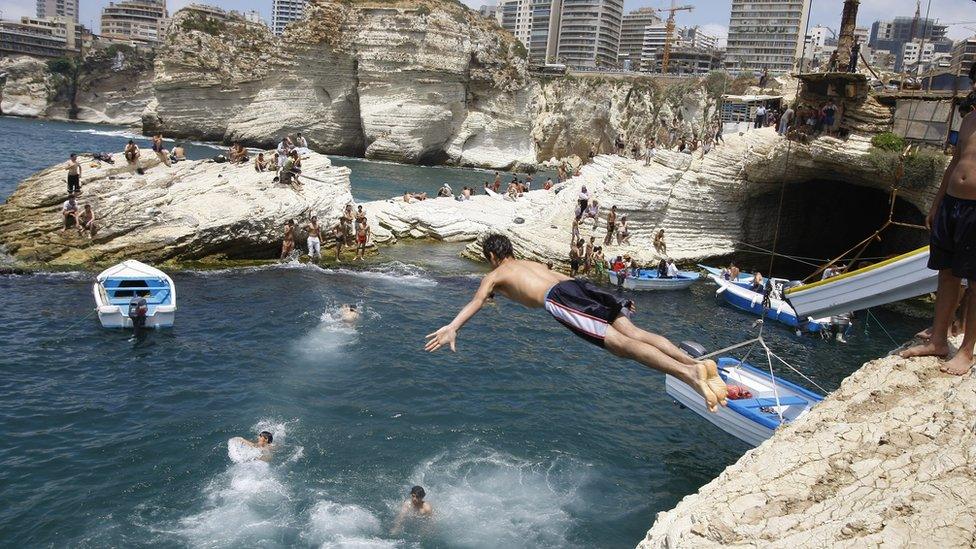
Tourism and leisure are important to the Lebanese economy
Related topics
- Published7 April 2023
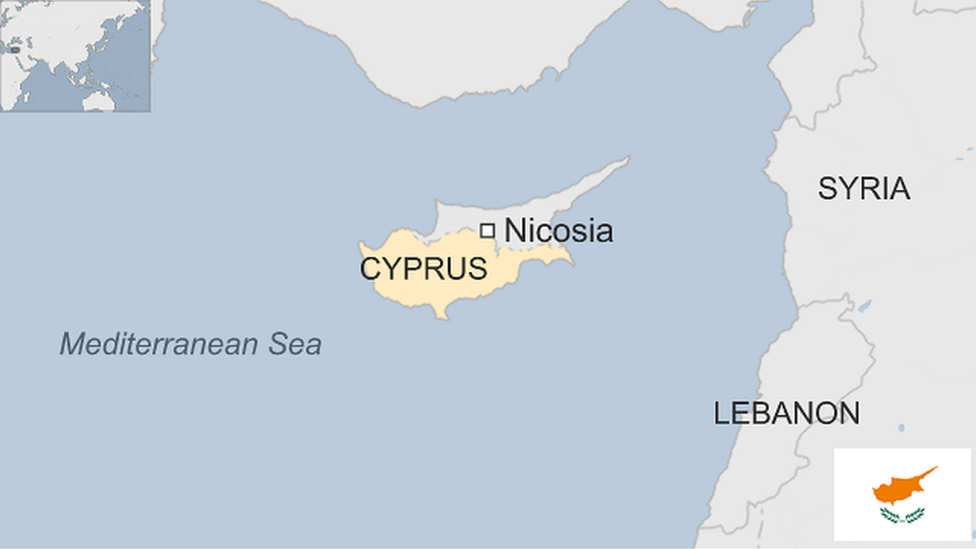
- Published22 August 2023

- Published7 January

- Published29 August 2023
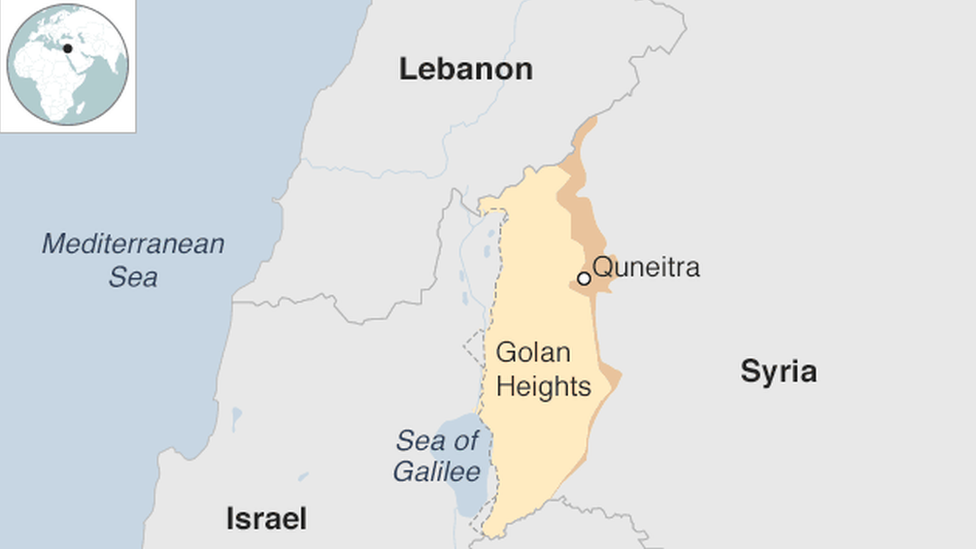
- Published13 October 2023
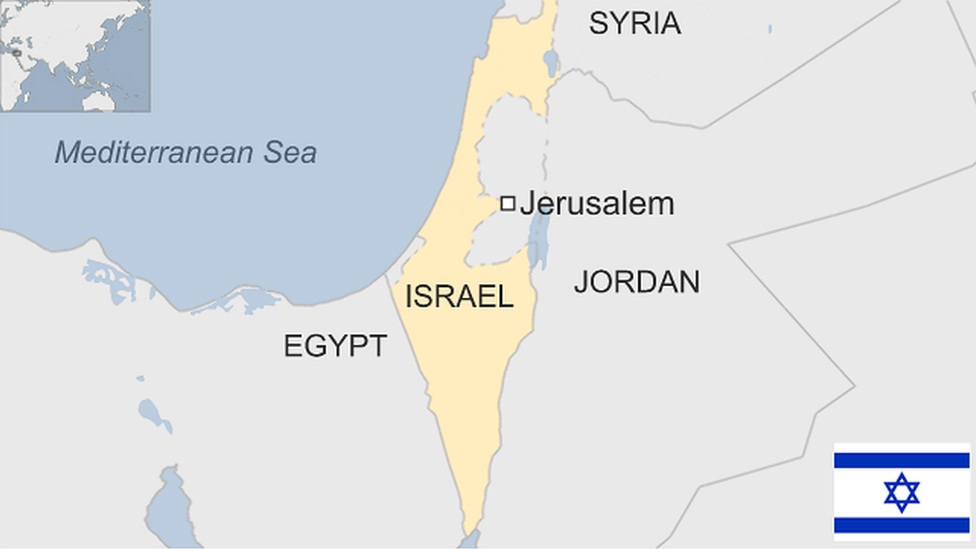
- Published26 June 2023
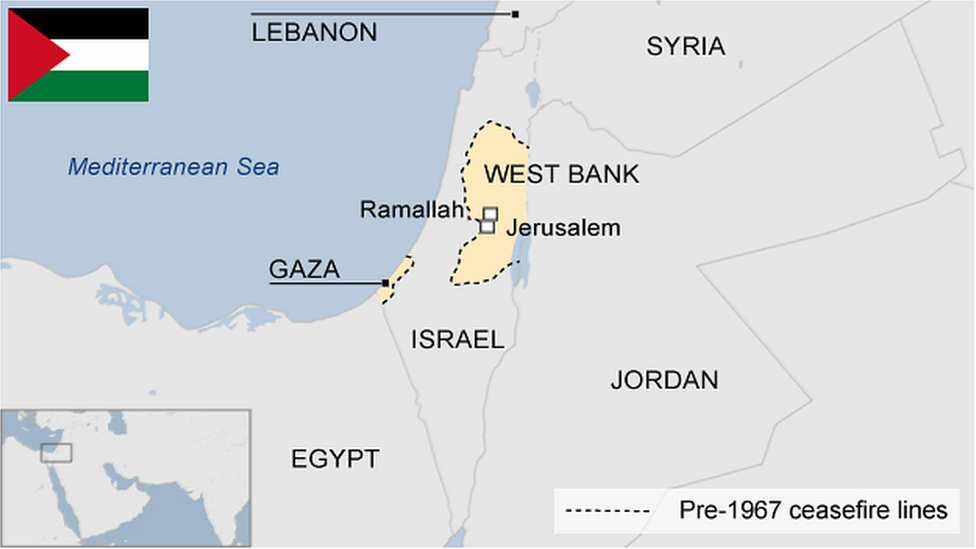
- Published19 April 2023
